Search Results
Showing results 1 to 20 of 22

Dunking the Planets
Source Institutions
In this demonstration, learners compare the relative sizes and masses of scale models of the planets as represented by fruits and other foods.
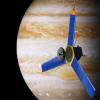
The Pull of the Planets
Source Institutions
In this activity, learners model the gravitational fields of planets on a flexible surface.

Space Stations: Sponge Spool Spine
Source Institutions
In this activity, learners simulate what happens to a human spine in space by making Sponge Spool Spines (alternating sponge pieces and spools threaded on a pipe cleaner).
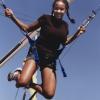
Capturing Homemade Microgravity
Source Institutions
This activity (page 2 of the PDF under SciGirls Activity: Microgravity) is a full inquiry investigation into how ordinary things behave in microgravity, similar to what astronauts experience.
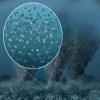
Searching for Life
Source Institutions
In this activity, learners discuss how life is defined and conduct a simple experiment, looking for signs of life in three different “soil” samples.
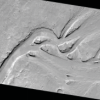
Mars from Above: Carving Channels
Source Institutions
In this activity, learners create channel features with flowing water, comparing their observations to real images of Mars and Earth taken by satellites/orbiters.
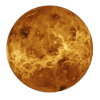
Radar Mapping: What's in the Box?
Source Institutions
In this activity, learners mimic remote sensing. Learners use a stick to measure the distance to a "planet surface" they cannot see, and create their own map of the landscape.
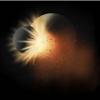
Future Moon: The Footsteps of Explorers
Source Institutions
In this activity, learners drop impactors onto layers of graham crackers!
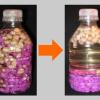
Infant Moon: Moon Mix!
Source Institutions
In this activity, learners investigate the Moon's infancy and model how an ocean of molten rock (magma) helped shape the Moon that we see today.
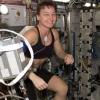
Space Stations: Beans in Space
Source Institutions
In this activity, learners perform 20 arm curls with cans that simulate the weight of beans on Earth versus the weights of the same number of beans on the Moon and in space.
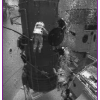
Weighty Questions
Source Institutions
In this activity about humans and space travel (page 1 of PDF), learners compare and contrast the behavior of a water-filled plastic bag, both outside and inside of a container of water.
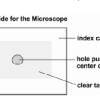
Making Regolith
Source Institutions
This lesson will helps learners answer the question: How does the bombardment of micrometeoroids make regolith on the moon?
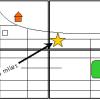
Solar System in My Neighborhood
Source Institutions
In this activity, learners shrink the scale of the vast solar system to the size of their neighborhood.
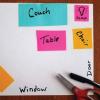
Make A Map for A Treasure Hunt
Source Institutions
In this activity, learners will explore how maps can provide information about a place and help us find our way from one location to another.
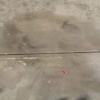
Kid Moon: Splat!
Source Institutions
In this activity, learners model ancient lunar impacts using water balloons.
Mission Insignia
Source Institutions
In this science/art activity, learners create an insignia or emblem for a planet exploration mission.

Investigating the Insides
Source Institutions
In this activity, learners work in teams to investigate the composition of unseen materials using a variety of tools.
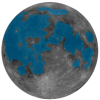
Teen Moon: Moon Ooze
Source Institutions
In this activity, learners model how the Moon's volcanic period reshaped its earlier features.
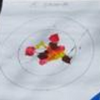
Moon's Long History: Impact Paintings
Source Institutions
In this activity, pairs of learners model how scientists use craters to determine the ages of lunar surfaces. One partner keeps time while the other creates a painting for the other to interpret.
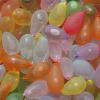
Balloon Impacts
Source Institutions
In this activity, learners measure the diameter of their water balloons, model an impact, measure the diameter of the “crater” area, and determine the ratio of impactor to crater.
